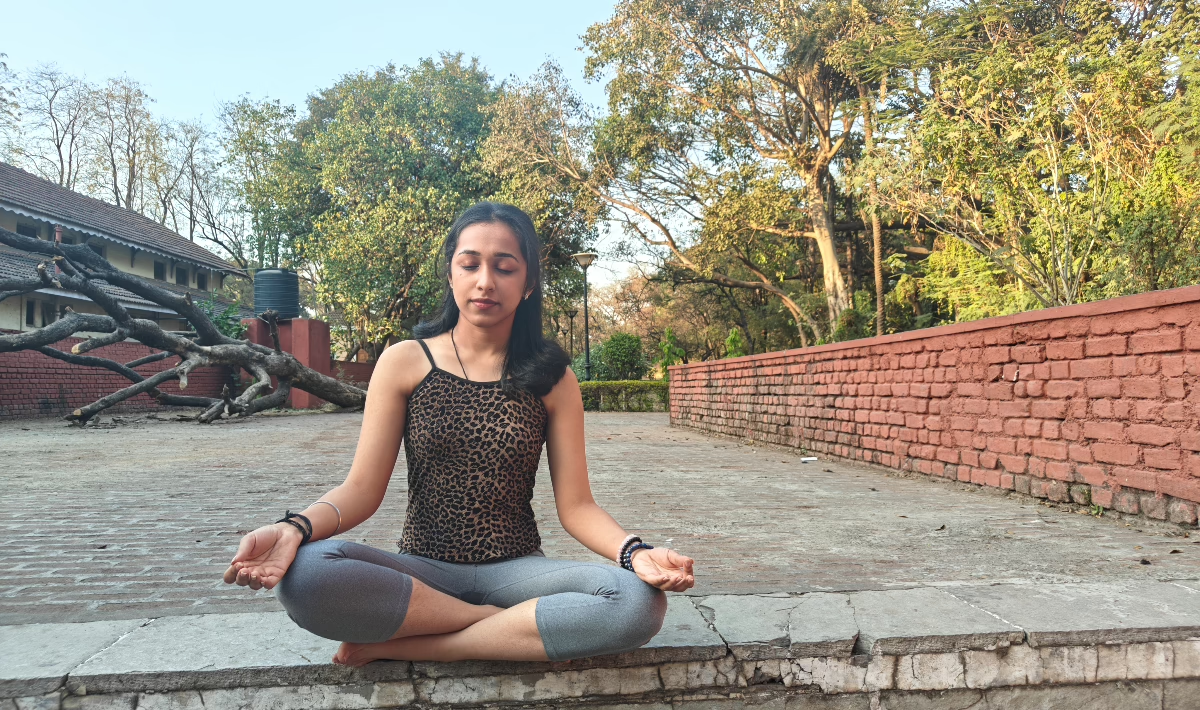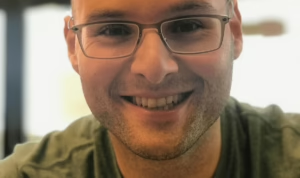Meditation is the practice of calming the mind and cultivating self-awareness. Often used to achieve mental clarity, emotional balance, and spiritual connection—meditation is a practice everyone should learn, but finding a teacher is always the first step. Mahek Seth is a spiritual practitioner.
From skeptic to practitioner
Mahek Seth’s journey, like most others, started with no knowledge of meditation. “Interestingly, I wasn’t always an avid believer in meditation. Initially, I was quite skeptical, thinking it was just about sitting quietly,” Seth said. “I wasn’t consistent either and it honestly felt like a chore—it felt like something I could pick up whenever I remembered, not a regular part of my life. However, as I explored deeper and allowed myself to truly experience it, I realized how transformative it could be.”
Meditation eventually became a doorway to understanding her thoughts and emotions. It helps her find peace amidst chaos, deepening her connection to her spirituality. Over time, she learned meditation isn’t about doing it perfectly, it’s about showing up for yourself, even for a moment.
“Now, I see it not just as a practice but as a gift I have given to myself—a moment of stillness in a busy world,” Seth said. “Through meditation I not only look within—I’ve also had many beautiful experiences. I’ve explored astral travel, the ability to go through my past lives, and I’ve even received premonitions during my meditations.”
Understanding meditation’s impact
But what exactly is meditation?
Meditation is a transformative practice that helps align the mind, body, and spirit. It offers numerous benefits that extend far beyond relaxation. It creates a bridge between the conscious and subconscious mind, allowing you to access deeper layers of self-awareness. On an energetic level, meditation helps balance and activate the chakras—the energy centers within the body. Each chakra governs specific physical, emotional, and spiritual functions.
According to Seth, consistent meditation also stimulates the parasympathetic nervous system, promoting a state of rest and repair. By regulating the parasympathetic nervous system, meditation reduces production of the stress hormone cortisol, allowing the body to enter a state of equilibrium.
Practices like mindfulness and transcendental meditation are more psychologically focused. They improve mental clarity, resilience, and emotional regulation by rewiring neural pathways through neuroplasticity. These specific forms of meditation, among others, provide an opportunity for self-discovery and spiritual transformation.
Navigating potential challenges
Meditation is celebrated for its transformative benefits, but—like any practice—it comes with potential challenges.
“Meditation can bring unresolved emotions or past traumas to the surface, which may feel overwhelming without proper guidance or support,” Seth said. “Physically, prolonged sessions in the wrong posture can lead to discomfort. Energetically, advanced practices like chakra meditation or Kundalini awakening—if not approached correctly—can cause imbalances, leading to symptoms such as headaches, dizziness, or emotional instability.”
Meditation in many forms
“For some, meditation might mean sitting quietly and focusing on their breath or a mantra, allowing the mind to settle and reconnect. For others, it could take the form of mindful movement, such as yoga, tai chi, or even walking in nature. Activities like painting, gardening, or playing an instrument can also become meditative when you’re fully immersed in the process, free from distractions and anchored in the present moment,” Seth said.
Meditation is highly adaptable, making it accessible for people with different lifestyles. Those at certain stages of life or with certain personality types may find other ways to achieve similar benefits like exercising, journaling, or simply just engaging in meaningful conversations.
A practical guide for beginners
Forcing meditation when it doesn’t feel right can lead to frustration or resistance. If a person decides to start meditating, Seth has guidance for that as well: “Starting a meditation practice doesn’t have to be intimidating or complex. The most important step is finding a starting point that feels comfortable and sustainable.”
Mindfulness meditation involves observing your thoughts, feelings, and surroundings without judgment. It’s important to remember that meditation is not about perfection. In the beginning, your mind will likely wander, and that’s completely normal. A part of the meditative process is learning how to refocus without self-criticism. With time, it becomes easier to remain present and focused.
Consistency is key. Rather than forcing yourself to sit for longer sessions, build your practice by starting with just a few minutes each day. Consistency will allow you to build a deep connection to your practice, fostering feelings of inner peace, mindfulness, and self-awareness.
The purpose of practice
At its core, meditation is about cultivating mindfulness, self-awareness, and inner peace. However, the goal of meditation can vary widely depending on individual needs. By regularly engaging in meditation you train the mind to let go of what is out of your control—allowing for improved emotional regulation and increased resilience. By building these skills, meditation helps you respond with greater clarity and composure in stressful situations.
Meditation offers a space for reflection, enabling you to uncover unconscious thought patterns and limiting beliefs that may be holding you back. We learn about ourselves through repeated reflection—where we can grow, where we made a mistake, where we may have veered off course. Over time, this fosters personal development and ultimately leads to a closer relationship to ourselves. As we begin to uncover our true desires, life purpose, and areas in need of healing, we get closer to the heart of who we are—closer to fulfillment.
Lastly, meditation encourages detachment. Detachment allows you to experience life without clinging to outcomes—fostering feelings of freedom, peace, and emotional wellness.
Meditation’s targets are as varied as the individuals who practice it. Whether you’re seeking relaxation, emotional healing, spiritual connection, or mental clarity—meditation provides a versatile tool to meet those needs. With consistency, meditation can lead to a more peaceful life—a life of wellness, intention, and meaning.

Vrindha, an international student from India, is fueled by her fervent love for diverse art forms such as dance, drama, music and theatre. Eager to immerse herself in new experiences and broaden her horizons, she sees her involvement with the Collegian as a gateway to both sharing her passions and delving into new realms of knowledge.







Be First to Comment